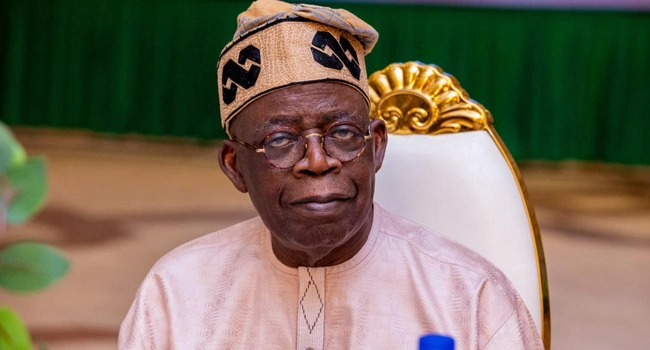Photo caption: President Bola Tinubu. Photo: State House
President Bola Tinubu has formally ratified and adopted a road map for the Nigerian Electricity Supply Industry by approving the National Integrated Electricity Policy.
The policy aims to unlock $122.2bn in investments to overhaul Nigeria’s power sector.
At the Federal Executive Council meeting on Monday, Tinubu ratified the long-awaited National Integrated Electricity Policy—first submitted in December 2024—setting the stage for Nigeria to attract $122.2bn in investments.
The policy outlines a sweeping reform agenda for the electricity sector, aligning with national development goals and global best practices, as required by Section 3(3) of the revised Electricity Act 2023.
The PUNCH had earlier reported in March that the policy seeks to secure a total investment of $122.2bn to diversify the country’s energy sources, reduce dependence on the national grid, and enhance the overall stability and sustainability of the nation’s energy infrastructure.
The amount to be raised between 2024 and 2045, representing 21 years, is to ensure energy diversification from the current electricity sources of hydropower and gas-fired thermal plants.
It aims to diversify energy sources by incorporating hydrogen, solar photovoltaic technology, biomass, wind, gas projects combined with carbon capture, utilisation, and storage technologies, nuclear, solar (concentrated solar power), and bioenergy.
It also explained that $192m would be incurred over five years, from 2024 to 2028, to boost transmission capacity nationwide.
A statement by the Special Adviser to the Minister of Power on Strategic Communications and Media Relations, Bolaji Tunji, quoting his boss, Adebayo Adelabu, stated that the implementation of the new electricity policy was already underway.
It noted that the policy’s impact would soon be visible across the power sector.
Adelabu said, “The road map policy addresses critical challenges in Nigeria’s electricity sector through a comprehensive framework for sector transformation with clear guidelines for sustainable power generation, transmission, distribution, as well as integration of renewable energy sources, its promotion, energy efficiency and enhancement of sector governance.”
He described the passage of the Electricity Act 2023 as a pivotal moment for the Electricity sector as it signals a transformative change which has laid the foundation for NESI, thus enabling exponential socio-economic growth.
“This National Integrated Electricity Policy and Strategic Implementation Plan is a comprehensive roadmap developed to guide all stakeholders – the Federal and State Governments, market participants, investors, and indeed all Nigerians, through this transition,” he stated.
=== PUNCH ===



